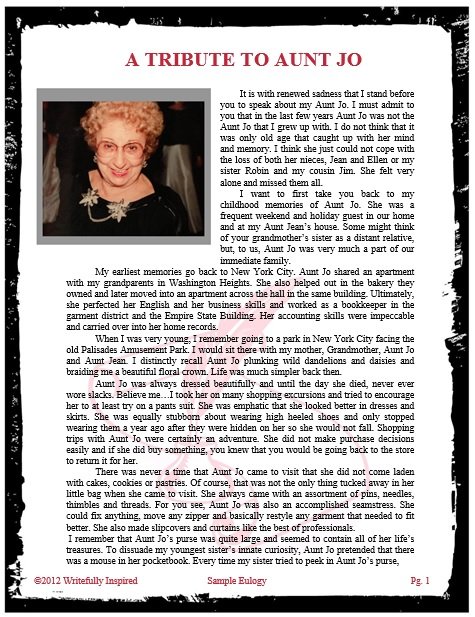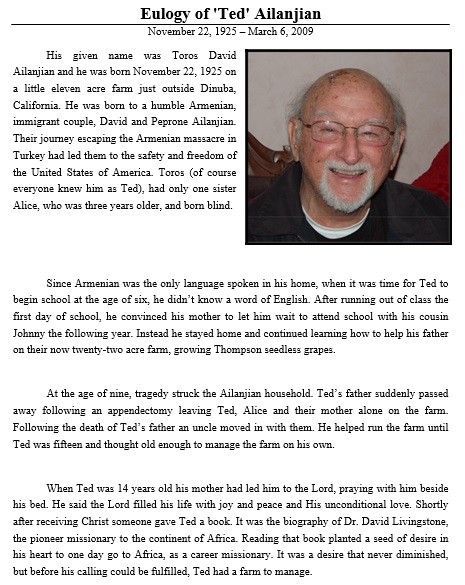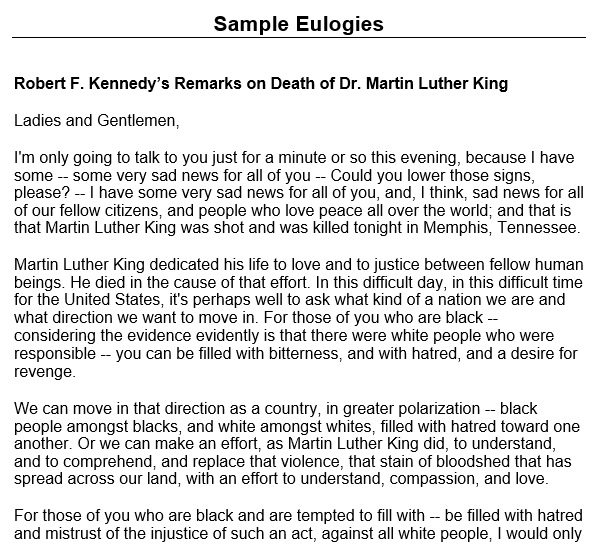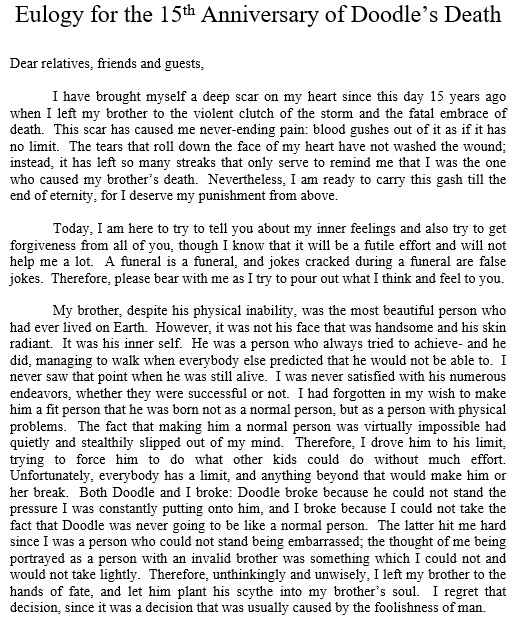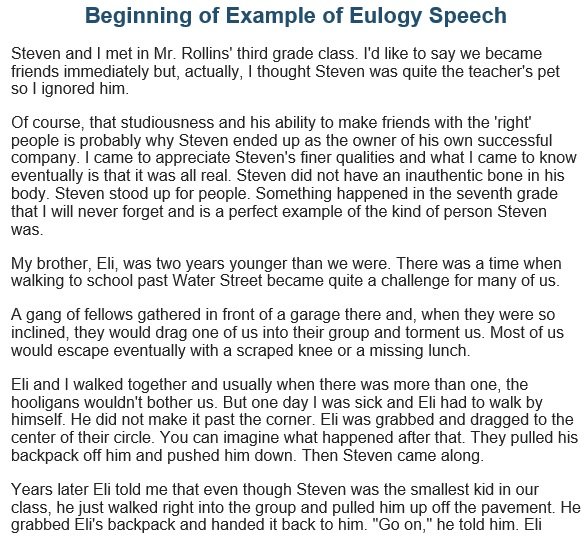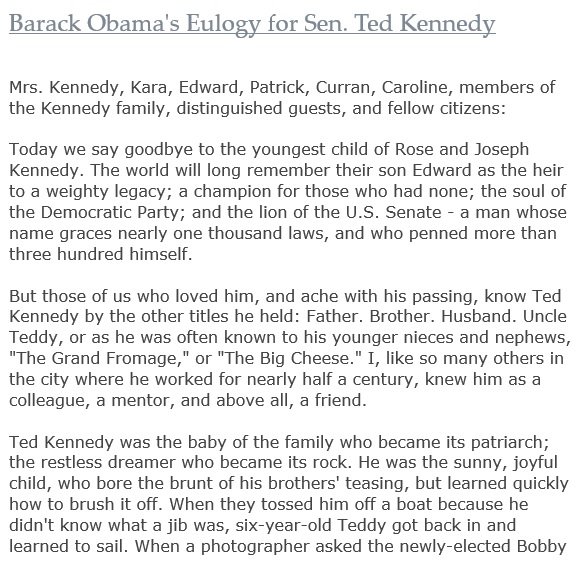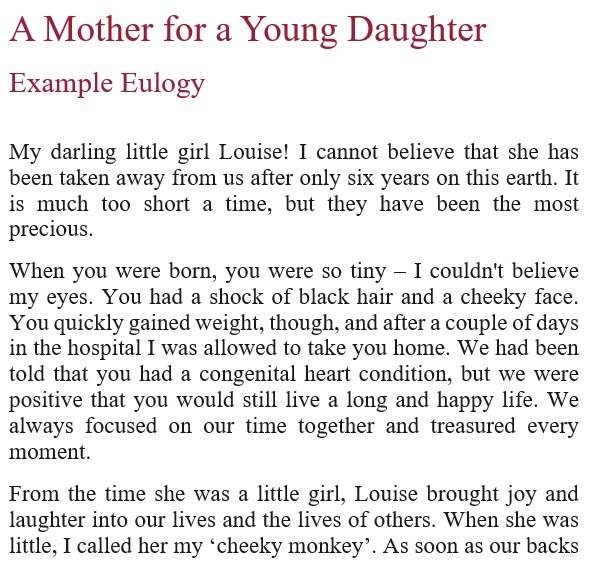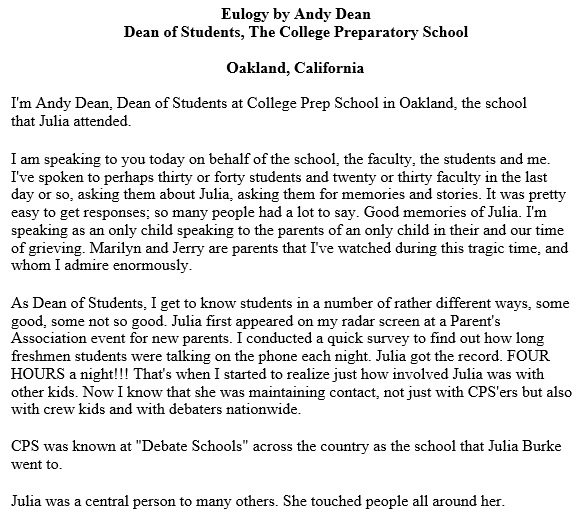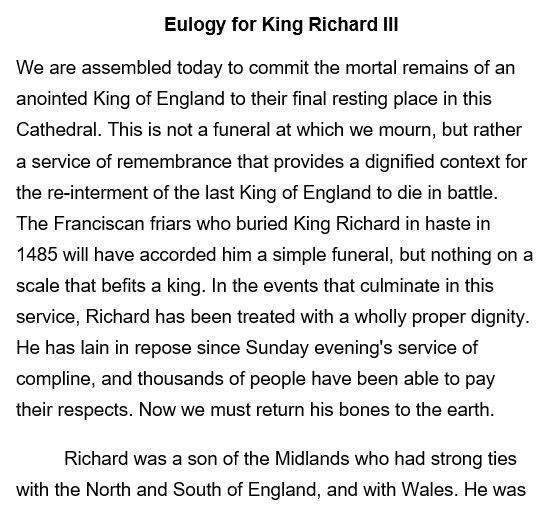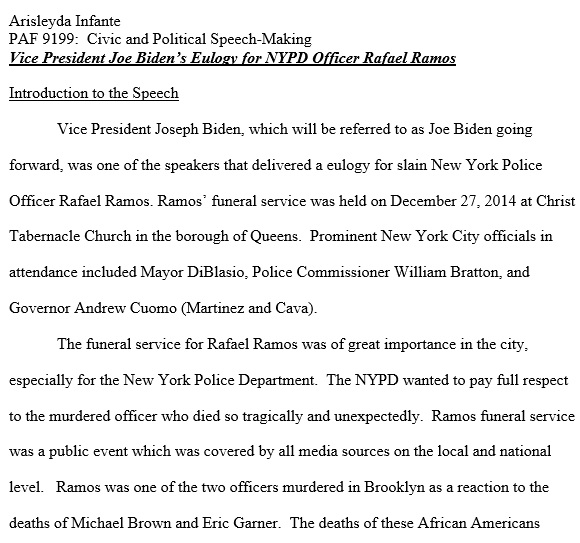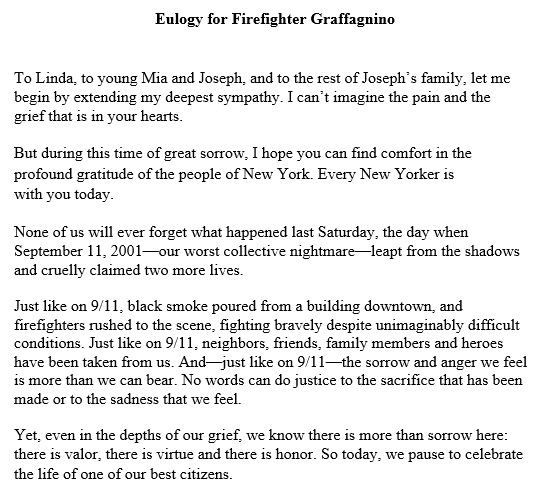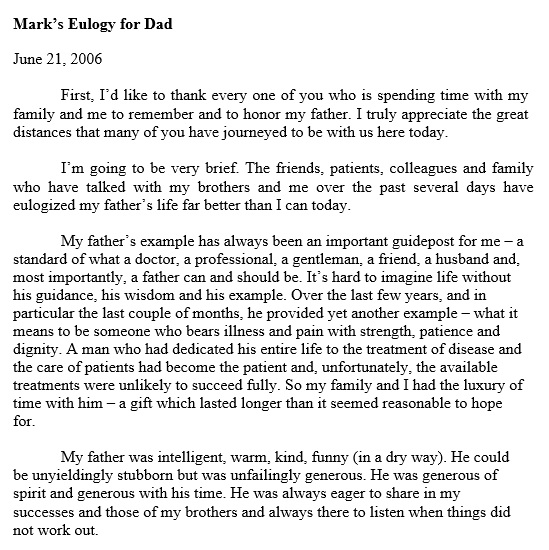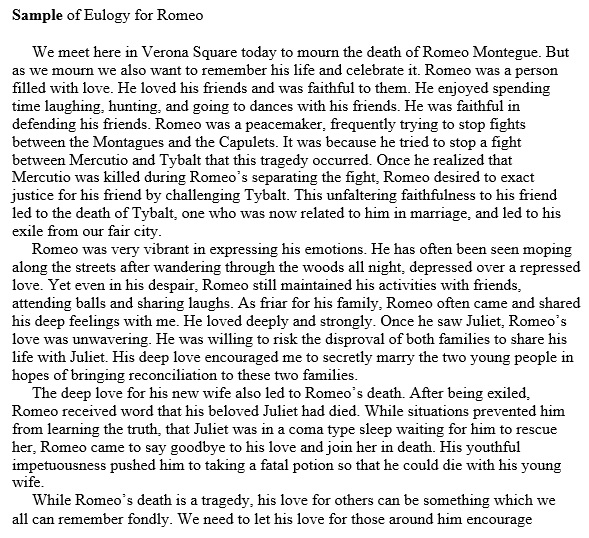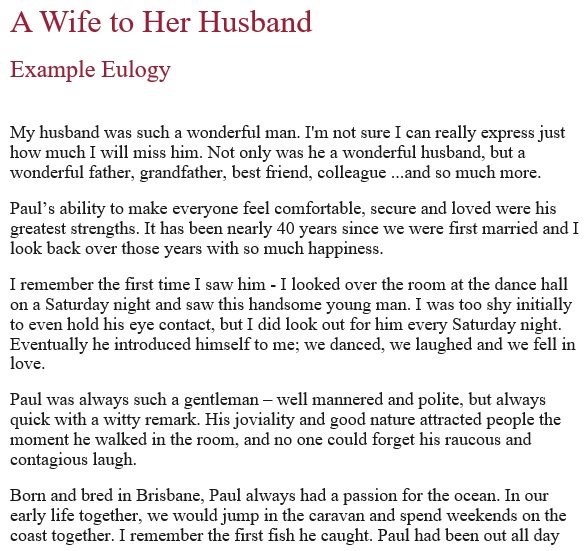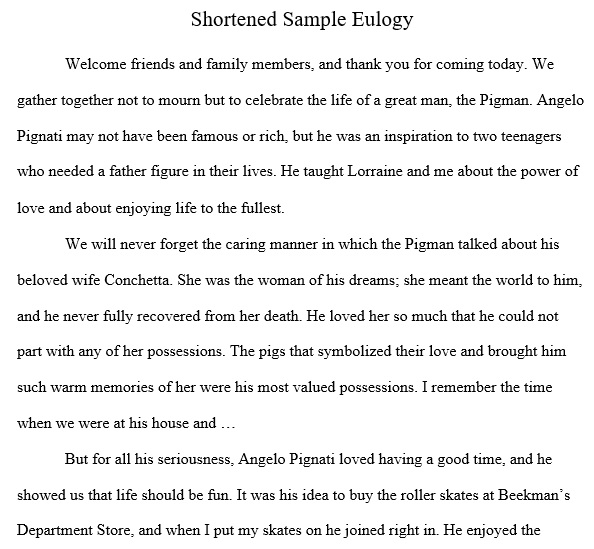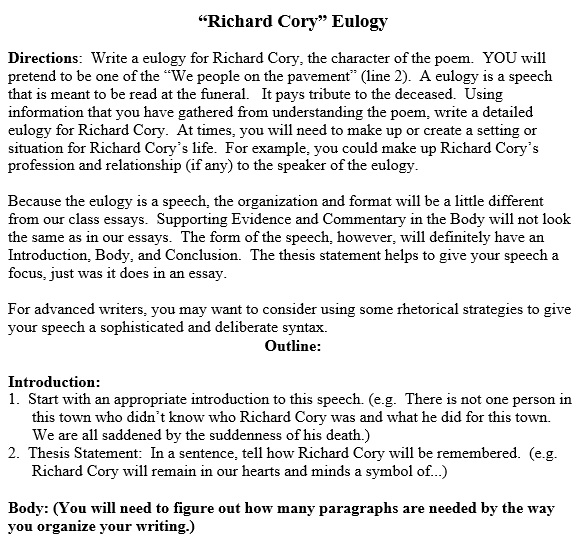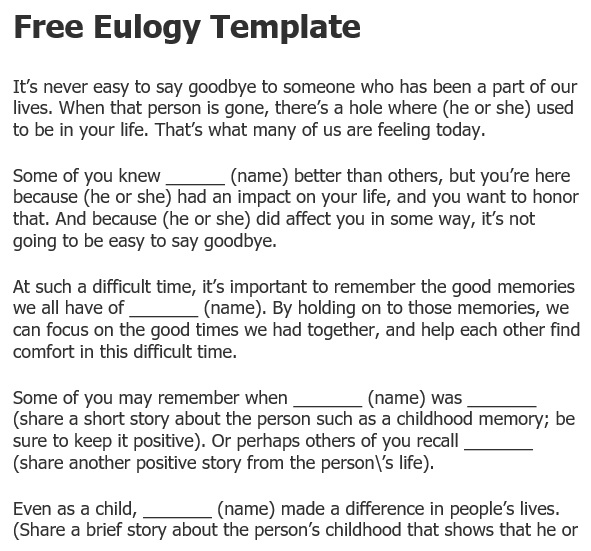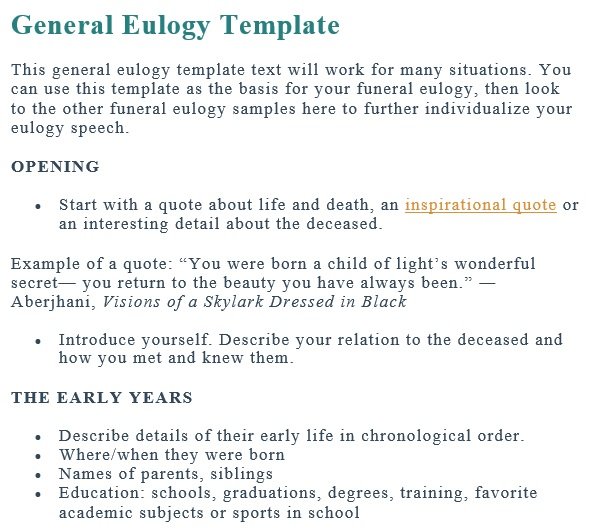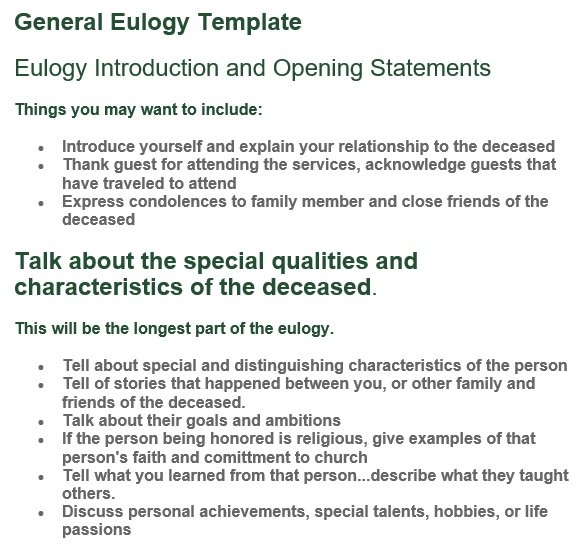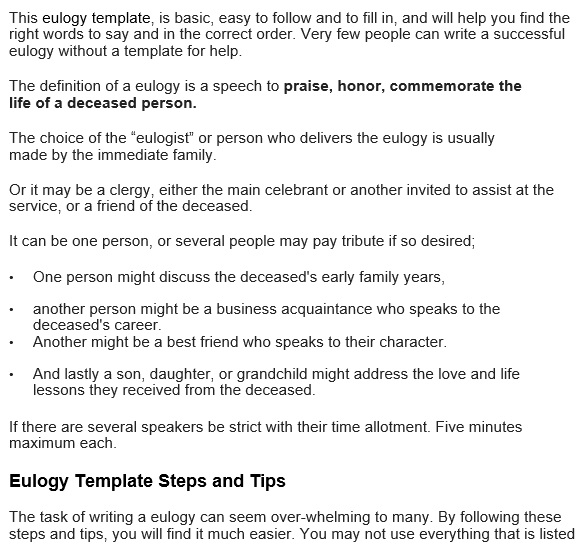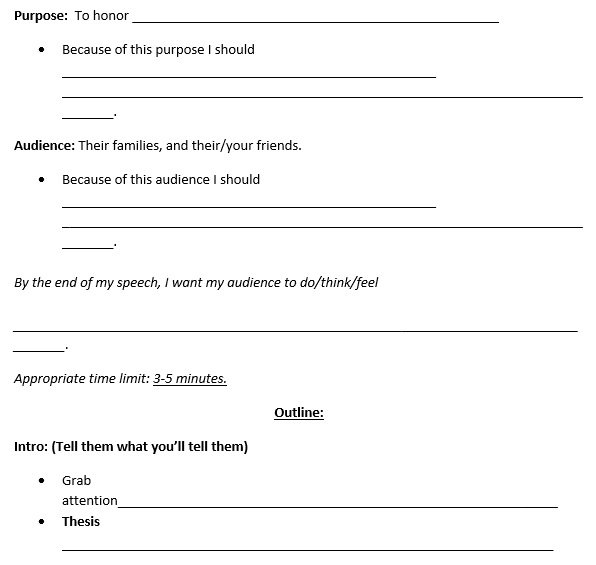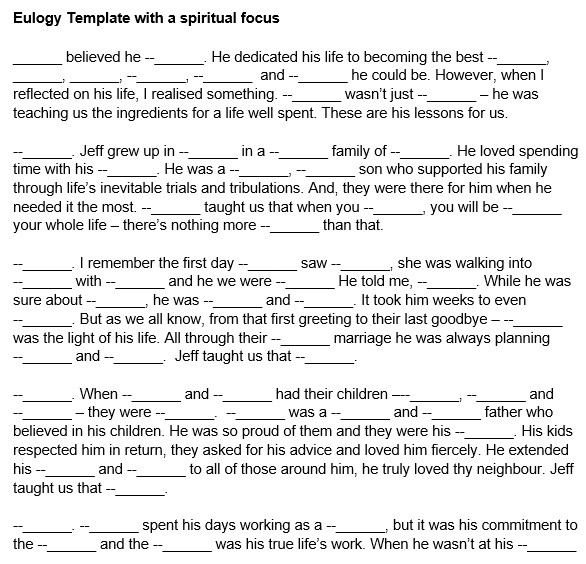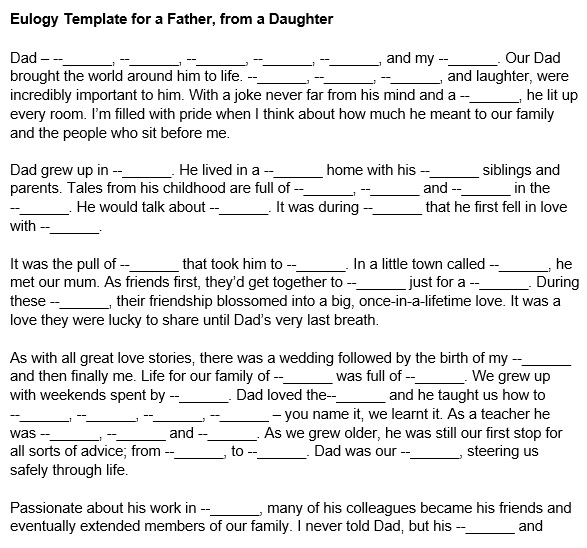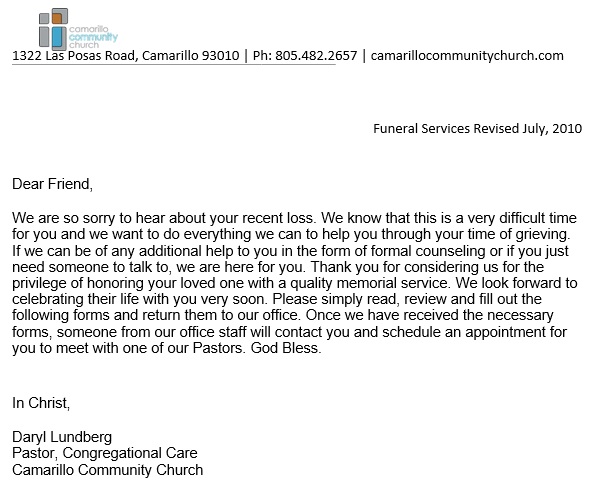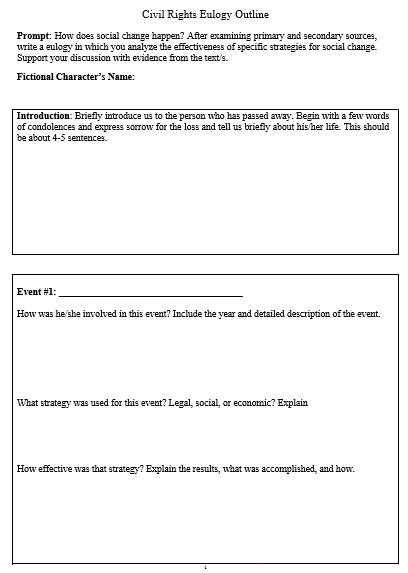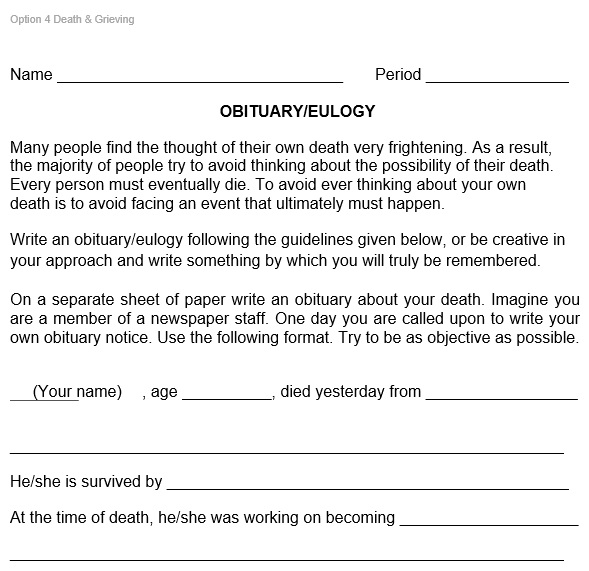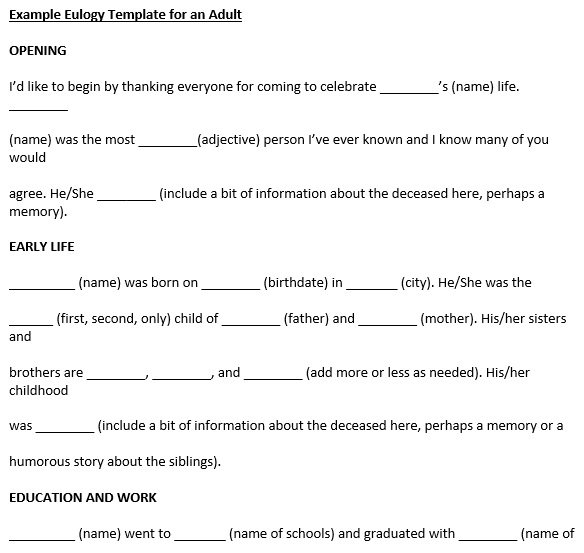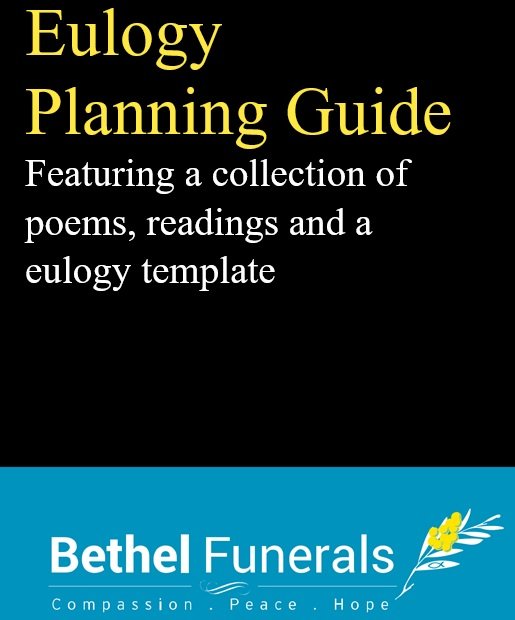A eulogy template contains a basic outline that you should follow during writing a funeral speech at a memorial service. This document acts as an example of what to write about and as a source for inspiration for the funeral. With the help of a template, you can draft a short and an effective speech for the person who dies.
Table of Contents
What is a eulogy?
A speech written to honor, commemorate, or praise the life of died person is known as eulogy. To give a eulogy, the family of died person selects someone outside of their family. However, the members of the family can also create the eulogy or assign the task to a priest. Also, more than one person can compose a eulogy speech outline for the deceased. Several people can give speeches. It is best to stick to a maximum of 5 minutes if several people give eulogies. In this way, you can prevent the service from running for too long.
Basic parts of a eulogy template:
It is extremely overwhelming for a lot of people to compose a eulogy. This is because at that time you have already lost your loved one and you have to come up with a speech. The one advantage of this speech that you can say whatever is in your heart. In addition, there is no specific eulogy format to follow. Since, it isn’t a professional speech that you must submit to your supervisor. If you are composing the eulogy at the first time then look at a sample eulogy. It will give you a better idea of what it should contain. Below are the basic parts that it must contain;
Opening:
In the opening, state a funeral quote that contains a general message about death and losing someone.
Earlier years:
You can include this part if you know the deceased when he/she was still young. This part usually includes by the family members or close family friends. You can share some of your best memories and other good memories that you want to recall about the deceased.
Family:
Speak about the family of the deceased. Also, talk about the people he/she left behind. You can also explain a short history about how the deceased met his/her partner and began a family.
Professional life:
At the workplace, if you were a colleague of the deceased then talk about his/her professional life. Share his/her achievements and accomplishments. You can also share the important work-related event of the deceased’s life.
Memories and life lessons:
This part is considered as the most emotional part of the eulogy format if you have closed relationship with the deceased. Discuss the life lessons that imparted to you by the person you lost. Furthermore, this part will bring the audience to tears as they also memorize the moments they shared with the deceased.
Ending:
In the end, wrap things up. State the quote which applies to the life of the deceased. Include a statement for thanking the deceased for being a part of all your lives and how everyone will miss him/her.
How to write a eulogy?
Here are some tips for creating a eulogy;
- At first, you should think about the ideas you would like to include in your speech. There are a lot of things that you have to select like stories, personal information, memories, and more. You can also consult with the family members of the deceased for ideas that what you should add to your eulogy.
- Next, write the introduction. Acknowledge all the guests in the introduction and provides that why they’re all gathered together. You can say that it is a commemoration of the life of the deceased. Also, you have to introduce yourself and your relationship with the deceased. After that, thank all the guests for attending the funeral service.
- Talk about the life of the deceased for the next few paragraphs of your speech. If you don’t have any idea about the young life of the decease then it’s better to speak to the family members of the deceased. Speak to them in a light tone and keep in mind that they all are grieving as well. Ask them to share their fondest memories. You can also ask questions in order to build your biography. However, if they don’t want to talk too much then don’t ask in detail.
- When you have given a short background of the deceased then speak about him/her more. Share your special memories with the deceased and a couple of stories. If you have a closer relationship with the deceased then you can easily write this part. Gather as much information as you can to make it more interesting and understandable. After that, add your own ideas which you have collected.
- In closing, speak about some effective words of comfort. It is your responsibility to add some comfort to the crowd. The most important lessons that you have learned from the deceased also include it. Close your speech by saying goodbye to the person. You should also thank him/her for being an important part of your life.
- Before delivering it, you should make sure to proofread it first. If your speech has grammatical errors then it may reduce the impact of your speech.
Some additional tips for writing a eulogy:
Consider the following tips;
Decide on the tone
You can decide with the tone of eulogy that whether the funeral service will move forward as a light-hearted service or a solemn one. The tone of the eulogy can also set by the cause of death, age, personality, or wishes of the deceased.
Make it word for word
It isn’t compulsory to write down the whole eulogy. But, if the speaker wants to recite a literary piece or quotation, it is necessary. Instead, you should use speaking prompts in order to make sure suitable emotional delivery. In the memory of the deceased, you can play some uplifting funeral song.
Get feedback
In order to scrutinize the draft for any mistakes, update facts, or remove improprieties, the eulogizer asks deceased’s close family members or friends. This way, you can get an additional check for the accuracy of the eulogy to the deceased.
To immortalize the deceased, eulogies are beautiful pieces. People who have attended the funeral service or were absent must have a copy of it to celebrate the deceased beyond the service. During and after the service, print and share copies of the eulogy and publish it online.
Avoid perfection
You should use normal conversation in the eulogy because a typical conversation is habitually imperfect. That way, you can connect with the listeners better.
Rehearse the eulogy
Before the memorial service, you should rehearse the eulogy. At first, the speaker should speak out the words of the eulogy to themselves in order to judge their appropriateness. By doing rehearsal, you can avoid mistakes during the actual delivery.
Speak slowly
The speaker should speak slowly during the delivery and should pause when required. It assists you to prevent anxiety and choose words that deliver the message better carefully.
Memorize much
It won’t look good to read the eulogy directly off the page. Also, it would be harmful to memorize the content of the eulogy. You may forget the memorize words which will interrupt the flow of the speech. Rather than this, you should make a list of prompts that can be consulted quickly during the speech.
Conclusion:
In conclusion, a eulogy template is an extremely useful tool during the funeral service. A eulogy is a type of speech written and delivers to honor the life of the deceased. With the help of a eulogy, you can deliver whatever is in your heart.
Faqs (Frequently Asked Questions)
You should start a eulogy by building your relation to the deceased. Usually, a family member, close friend or colleague of the one who died give a eulogy. You can share a favorite author quote regarding the meaning of life and death.
A eulogy should be a maximum of 10 minutes which is about 1000 words. The precise eulogy of 5 minutes is also fine.

